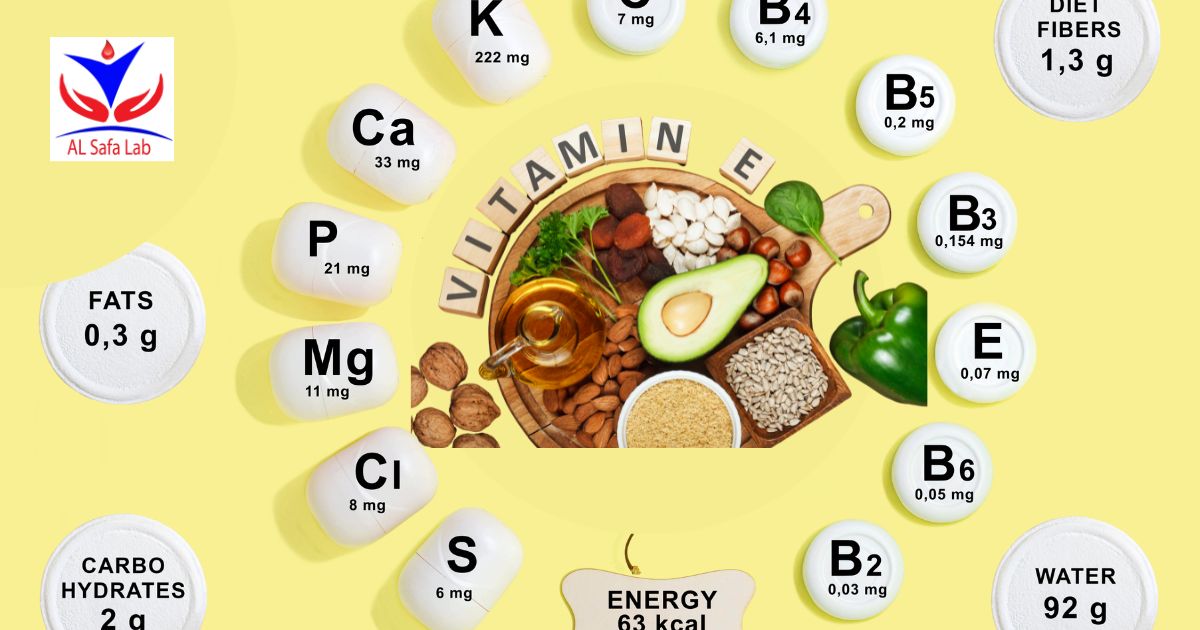As temperatures drop during the cold season, your body requires extra support to maintain energy, immunity, and skin hydration. Reduced water intake, less sun exposure, and limited variety in diet often lead to nutrient deficiencies that affect your skin, hair, and overall vitality. That’s why focusing on vitamins and minerals for winter is essential to keep your body resilient and your appearance glowing even in the harshest weather.
In this comprehensive guide, we’ll explore the most important vitamins and minerals your body needs in winter, their medical importance, natural food sources, and expert tips for daily intake.
Why Vitamins and Minerals for Winter Are Essential?
Vitamins and minerals are micronutrients that play vital roles in almost every physiological process in the body. They:
- Support the immune system, which is often weakened during the cold season.
- Prevent skin dryness, cracking, and premature aging.
- Strengthen hair follicles, reducing shedding and breakage.
- Improve mood and energy levels, helping to fight winter fatigue.
Without proper intake, deficiencies can occur, leading to anemia, brittle nails, dull skin, and thinning hair. This makes winter nutrition a priority for anyone who wishes to stay healthy and glowing throughout the season.


Top Vitamins and Minerals for Winter
Winter is often associated with dryness, fatigue, hair loss, and a weakened immune system. This happens because cold weather reduces blood circulation to the skin, increases fluid loss, and limits exposure to sunlight. By ensuring you get enough Top Vitamins and Minerals for Winter, like:
1.Vitamin D – The Sunshine Vitamin
- Medical Importance: Vitamin D regulates calcium absorption, strengthens bones, supports immunity, and reduces skin inflammation. A lack of vitamin D is associated with dry skin and weak hair follicles.
- Sources: Sunlight (even 15 minutes daily helps), fatty fish (salmon, sardines), egg yolks, fortified milk.
- Expert Tip: Since sun exposure is limited in winter, physicians often recommend vitamin D supplements.
2. Vitamin C – The Collagen Booster
- Role: Vitamin C is a powerful antioxidant that fights free radicals, enhances collagen production (responsible for skin elasticity), and supports wound healing.
- Sources: Citrus fruits (oranges, grapefruits), strawberries, kiwi, bell peppers.
- Skin Care Use: Topical vitamin C serums combined with dietary intake improve skin radiance.
3. Vitamin E – The Moisture Protector
- Importance: Vitamin E is a fat-soluble antioxidant that protects skin cells from oxidative damage, prevents dryness, and strengthens hair strands.
- Sources: Almonds, walnuts, sunflower oil, wheat germ oil.
- Practical Use: Applying vitamin E oil directly to skin and hair provides instant hydration.
4. Vitamin A – The Cell Regenerator
- Function: Vitamin A (retinol) supports cell renewal, reduces acne, lightens pigmentation, and stimulates hair growth.
- Sources: Liver, sweet potatoes, carrots, spinach.
- Warning: Excess vitamin A can cause toxicity. Blood testing and medical consultation are recommended before supplementation.
book your medical consultation now easily


5. Zinc – The Growth Mineral
- Role: Zinc is a crucial mineral for cell division, tissue growth, and immune function. Deficiency leads to hair loss, brittle nails, and delayed wound healing.
- Sources: Red meat, poultry, shellfish (especially oysters), beans, nuts.
- Medical Note: Women with anemia or chronic fatigue may benefit from zinc supplementation.
6. Iron – The Oxygen Carrier
- Function: Iron is essential for transporting oxygen through hemoglobin. Low iron levels are a leading cause of hair loss and chronic fatigue in women.
- Sources: Lean red meat, spinach, lentils, liver.
- Medical Advice: Persistent hair thinning should prompt a ferritin blood test to check iron stores.
7. Omega-3 Fatty Acids – The Internal Moisturizer
- Importance: Omega-3 fatty acids reduce inflammation, maintain skin hydration, and improve hair elasticity.
- Sources: Fatty fish (mackerel, salmon), flaxseeds, chia seeds, walnuts, fish oil.
- Bonus Benefit: Omega-3 also reduces dandruff and scalp irritation in winter.
8. Magnesium – The Stress Reliever
- Role: Magnesium regulates over 300 enzymatic reactions, reduces stress (a major trigger for acne and hair loss), improves muscle relaxation, and enhances sleep quality.
- Sources: Whole grains, dark leafy greens, seeds, and nuts.
Special Focus: Vitamins and Minerals for Women
Women have unique nutritional needs that vary with age, pregnancy, and hormonal changes. The following vitamins and minerals are particularly important especially in winter:
- Vitamin D: For bone density, immunity, and reproductive health.
- Vitamin B12: For energy metabolism, nervous system function, and anemia prevention.
- Folic Acid (Vitamin B9): Essential before and during pregnancy to prevent neural tube defects.
- Vitamin C: Boosts immunity and promotes youthful skin.
- Vitamin E: Protects skin from premature aging.
- Vitamin A: Supports eye health and cell renewal.
- Iron: Prevents anemia, fatigue, and hair loss.


Medical Tips for Healthy Skin and Hair in Winter
- Stay hydrated: Drink 6–8 glasses of water daily, even in cold weather.
- Balanced diet: Incorporate a variety of foods rich in essential vitamins and minerals.
- Limit caffeine: Excess caffeine contributes to dehydration.
- Use topical care: Apply moisturizers and serums with vitamin C and E.
- Routine testing: Get a vitamin and mineral panel to detect deficiencies early.
- Consult professionals: Always seek medical advice before taking supplements.
Conclusion
The cold season doesn’t have to mean dull skin, brittle hair, or constant fatigue. By prioritizing the right vitamins and minerals for winter, you can strengthen your immune system, protect your skin from dryness, and keep your hair shiny and strong. Remember, these nutrients are not optional—they are vital for your body’s balance and resilience.
Make them part of your daily routine, combine them with healthy lifestyle habits, and you’ll enjoy glowing skin, vibrant hair, and a stronger body all season long.
